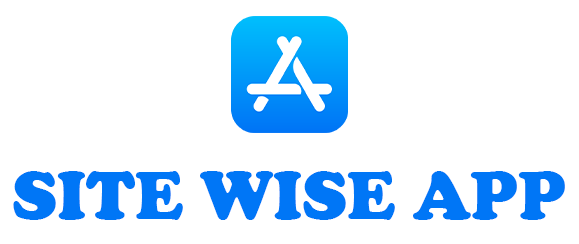In today’s rapidly evolving digital landscape, effective communication is paramount for business success. With over 2 billion users worldwide, WhatsApp has emerged as a powerful mobile messaging tool for companies seeking to engage with their customers. This article examines the significance of the WhatsApp API, outlining its API benefits for business communication, its operational framework, and the steps necessary for implementation. Readers will learn how to establish a WhatsApp Business account and discover best practices to enhance customer interactions, streamline operations, and improve customer engagement.
The Importance of WhatsApp API for Businesses
The WhatsApp API has become an essential resource for businesses aiming to improve their communication strategies, facilitating real-time support and significantly enhancing customer engagement.
By incorporating WhatsApp into their digital transformation initiatives, organizations can refine their messaging platforms, optimize communication channels, and ultimately promote business growth, customer retention, and user engagement.
The importance of the WhatsApp API transcends basic messaging; it plays a critical role in customer relationship management and enhances the user experience across multiple touchpoints, enabling personalized experiences.
Additionally, its functionalities in marketing strategy, customer support, and digital communication reinforce its position as a fundamental component of contemporary business communication.
travelquestz | tripsoutbounds | tripflyerhub | travelfarepro | travelvizion | jetjourneynet
Benefits of Using WhatsApp for Business Communication and Digital Engagement
Utilizing WhatsApp for business communication presents numerous advantages, including enhanced customer service through instant responses, advanced automation capabilities that facilitate real-time interactions, and improved business efficiency.
This messaging platform not only improves customer retention but also enables effective lead generation by fostering personalized communication and customer engagement that resonates with clients.
Its scalability allows businesses to adapt their outreach strategies and efficiently manage communication workflows while ensuring data security, user privacy, and seamless platform integration.
For instance, companies such as Zara have effectively employed WhatsApp to streamline customer inquiries, resulting in quicker resolutions, increased client satisfaction, and cost-effective communication.
The automation features, including automated greetings and templates, facilitate consistent messaging without compromising the personal touch, thereby enhancing customer interactions.
As businesses expand, the ability to manage a larger volume of conversations simultaneously becomes essential, and WhatsApp’s infrastructure ensures seamless scalability, real-time updates, and efficient client communication.
These attributes not only enhance customer satisfaction but also significantly improve overall operational efficiency, positioning WhatsApp as a vital tool for modern business communication and digital engagement.
How WhatsApp API Works
The WhatsApp API operates by offering a seamless integration of messaging solutions that enable real-time communication between businesses and their customers, supporting a mobile-first strategy.
This integration enables companies to develop customized workflows, utilize chatbots for automated responses, and collect valuable customer insights and engagement metrics that enhance user engagement.
By connecting the API with existing systems, businesses can streamline their communication channels and improve operational agility, ultimately fostering brand loyalty, user retention, and customer satisfaction.
Integration and Features of WhatsApp API
The integration of the WhatsApp API includes a diverse range of messaging features and productivity tools aimed at enhancing the communication strategies of businesses, thereby ensuring operational efficiency and improving customer interactions.
Key features comprise automated notifications, real-time messaging, and the implementation of chatbots for streamlined communication. By utilizing analytics, businesses can effectively measure engagement metrics and refine their outreach efforts, ultimately leading to increased customer satisfaction, retention, and operational efficiency.
This process enables companies to significantly reduce response times and foster meaningful engagement with their audiences. With chatbots capable of addressing common inquiries and providing instant support, organizations can allocate resources more efficiently, concentrate on addressing complex customer needs, and enhance their overall communication strategy.
Furthermore, automated notifications, real-time updates, and instant feedback ensure that customers receive timely updates regarding their orders or service changes without the necessity for manual intervention.
As businesses adopt these advanced features, they not only gain a competitive advantage but also enhance their capacity to build stronger relationships with customers through tailored communication and personalized messaging that aligns with customer preferences.

Steps to Implement WhatsApp API for Your Business
The implementation of the WhatsApp API for businesses entails several essential steps that guarantee a smooth transition, effective utilization, and reduce operational costs, thereby enhancing the customer journey and improving user adoption rates.
Initially, organizations must evaluate their existing messaging strategy to identify areas that require enhancement. Subsequently, it is crucial to integrate the API with current CRM systems and customize workflows to align with a customer-centric approach, ensuring efficient workflow automation.
This strategic implementation not only facilitates seamless communication but also enables businesses to leverage analytics for informed, data-driven decision-making, enhancing their communication strategy.
Setting Up and Managing WhatsApp Business Account for Optimal User Experience
Establishing and managing a WhatsApp Business Account is crucial for effectively utilizing the WhatsApp API, as it offers businesses tailored messaging solutions that enhance customer support, engagement, and overall user experience.
To initiate this process, businesses should download the WhatsApp Business app and register a phone number dedicated exclusively to this account. Once the account is established, verifying the business can enhance its credibility, particularly as customers prioritize trustworthiness in their interactions. It also helps enhance professional networking and business scalability.
After selecting a profile picture that accurately represents the brand’s identity, it is essential to provide relevant information, including business hours and a direct link to the website.
While managing the account, it is important to regularly evaluate the effectiveness of various messaging strategies and adapt responses to meet customer expectations, ensuring optimal user engagement.
Timely replies can significantly enhance customer satisfaction, and utilizing features such as quick replies can streamline communication, ultimately allowing for more efficient engagement, enhanced customer interaction, and improved response time overall.
Best Practices for Using WhatsApp API to Enhance Your Business and Operational Efficiency
Implementing best practices when utilizing the WhatsApp API is essential for enhancing business operations and ensuring service excellence, as it directly influences customer satisfaction and engagement metrics. Organizations should prioritize timely response times, leverage customer feedback to refine their messaging strategies, and maintain a consistent brand voice across all communications, thereby ensuring strategic communication.
The use of features such as automated responses and chatbots can significantly enhance operational efficiency, service automation, and streamline customer interactions.
To fully leverage the capabilities of the WhatsApp API, organizations should consider integrating analytics tools that provide insights into customer interactions and preferences. This data-driven approach enables businesses to make informed adjustments to their communication strategies, ensuring that their messages resonate effectively with their audience and improve conversion rates.
Encouraging customers to share their feedback not only fosters a sense of community but also enhances customer loyalty, as clients feel valued and acknowledged. By maintaining a customer-centric focus and continuously evaluating communication practices, organizations can adapt to changing needs, enhance personalized experiences, and reinforce their relevance in an increasingly dynamic marketplace.




